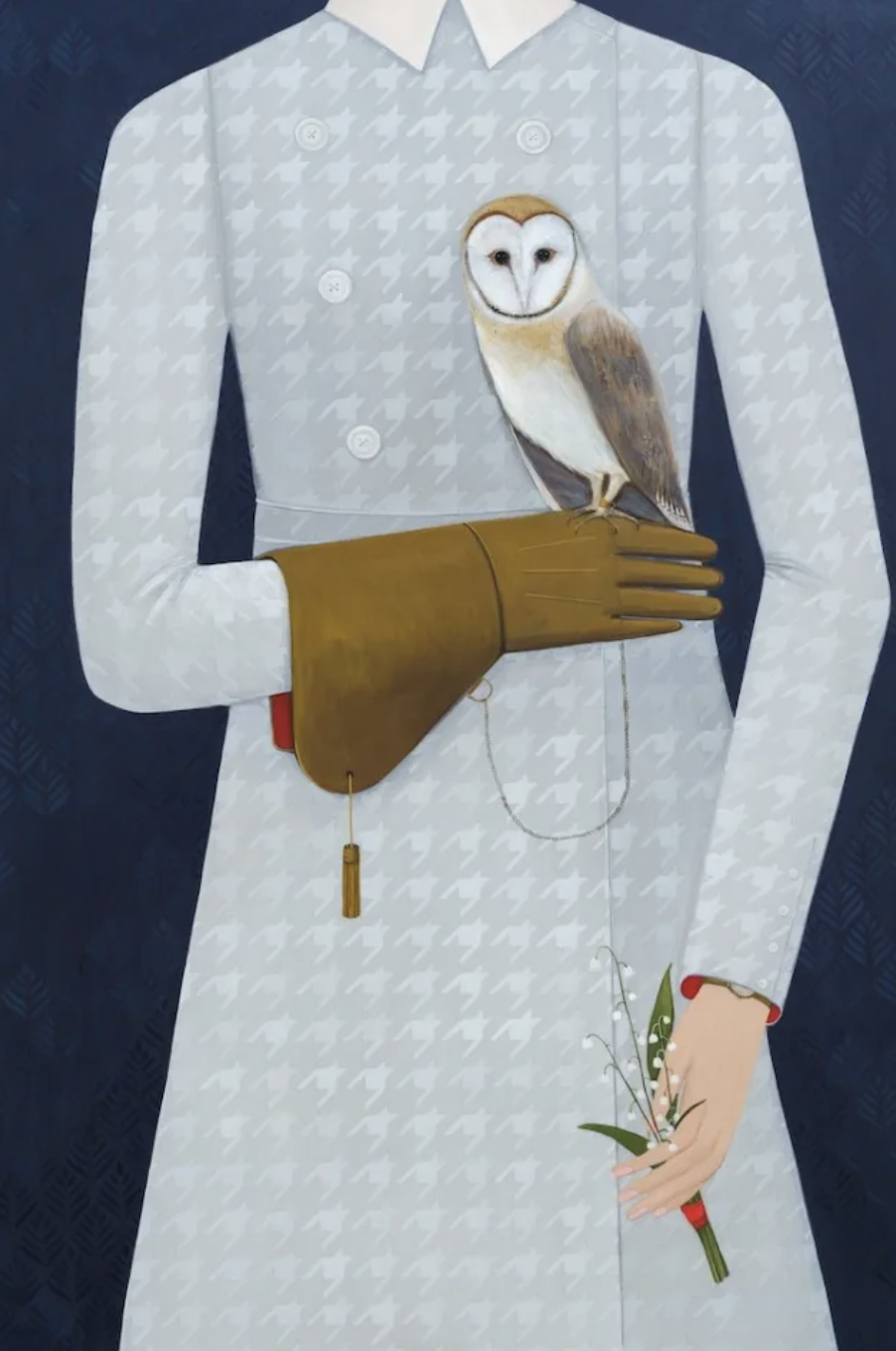1275 Minnesota St /
Hashimoto Contemporary
It can be impossible to measure a stranger’s impression upon us. The echo of their perfume, the pattern of their jacket, their odd pet or quirky socks can linger in our subconscious, haunting the unlit corners of the mind. In her latest solo exhibition Close Encounters, Savannah-based artist Angela Burson considers her interest in strangers and transient spaces. Painting incomplete glimpses of strangers in undefined settings, Burson’s attention to details recreates a memory, a feeling, a dream of a chance encounter we didn’t realize we could recall.
Although Burson’s work often references the traces of strangers we meet, several new paintings directly reference occult and otherworldly encounters akin to the brief encounters experienced with unknown persons daily. Ghost Feet, for example, shows the profile of two figures’ feet, one in black boots with a yellow tongue and the other in white and brown dress shoes and yellow socks. They stand by on a checkered evergreen and mustard floor, one in front of the other as though forming a queue. In the background, two hazy, transparent legs dangle from above, barely grazing the floor. Like ghosts, the two full-color figures remain anonymous to us and perhaps each other. Even when we can see one another clearly, we may never know who exactly is in the room.
Odd details characterize several of Burson’s new paintings, reflecting how a memory of a surreal experience can jostle our belief in an objective reality. In May, a woman holds a pocket watch against her thigh in one hand and white unbloomed tulips in the other. The figure’s relaxed pose mimics the viewer in front of the work, creating an uncanny moment of mirroring—perhaps a portrait of ourselves from an alternative timeline. Another painting shows a cropped glimpse of a figure in a gray-blue houndstooth coat, a barn owl perched on a thick brown leather glove. A tiny chain tethers her ankle to the glove. Staring out of the canvas and into the viewer, the small, sharp brown owl eclipses the figure’s presence, reducing them to a hazy field of patterns and buttons as though recalled after waking from a dream.
